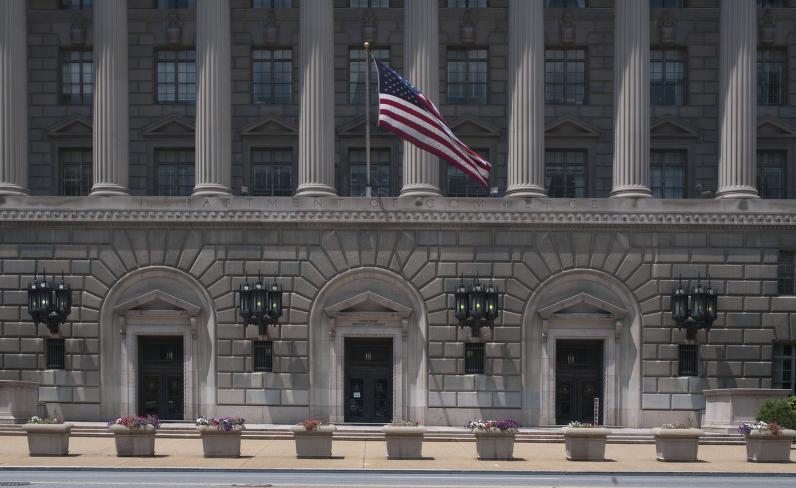New Tool and Partnerships to Aid Government in Addressing Risk

The Herbert C. Hoover Building in Washington, D.C., home of the U.S. Department of Commerce. (Carol M. Highsmith/Library of Congress archives)
The U.S. Department of Commerce (DoC) has a new diagnostic tool designed to build the U.S. government’s analytical capacity to understand and address supply chain risks and advancing resilience.
Called Scale, the tool was introduced September 10 during the inaugural Supply Chain Summit, held by the DoC in collaboration with the Council on Foreign Relations (CFR).
“The Scale tool, coupled with the (U.S. International Trade Administration’s) industry and analysis (I&A) business unit’s deep industry expertise, will enable the U.S. government to be more proactive and strategic in addressing supply chain risk,” a DoC statement said. “The tool compares risks across industries and provides an in-depth assessment of what is driving those risks.” Coupled with industry insights, it will highlight opportunities and actionable measures.
“The Biden-Harris Administration knows securing American supply chains is vital to protecting our national security and enhancing our economic competitiveness,” Commerce Secretary Gina Raimondo said during the summit. “By working with industry and taking an analytical, proactive approach, we are working to prevent the kind of supply chain failures that drove up costs for Americans during the (coronavirus) pandemic and to create new economic opportunities for communities across the nation.”
Other summit announcements included:
- Raimondo will meet this fall with industry representatives to talk about risk associated with artificial intelligence (AI) data centers. Upstream and downstream suppliers and customers are expected to attend, with discussion centering around bottlenecks, dependencies and mitigation recommendations.
- Strategic partnerships with seven key industry and academia stakeholders, including Institute for Supply Management® (ISM®), the National Small Business Association and Georgetown University. “These partnerships will help the (DoC) promote the global competitiveness of U.S. industry, help businesses become more resilient, and make its supply chain work more innovative and impactful.”
“The actions we’re taking at the Commerce Department to secure our supply chains are possible because of the work we’ve done since day one to leverage our innovative expertise and capabilities to put risk assessment and resiliency at the forefront of our commercial engagement,” Commerce deputy secretary Don Graves said in a press release.
“We remember the dark days of COVID and what it felt like when medical devices, (personal protective equipment), critical technologies and everyday household appliances were out of reach. That’s why mitigating the impact was step one and turning reactive policies into proactive policies became our second chapter, which is precisely what was on display at the Supply Chain Summit.”


